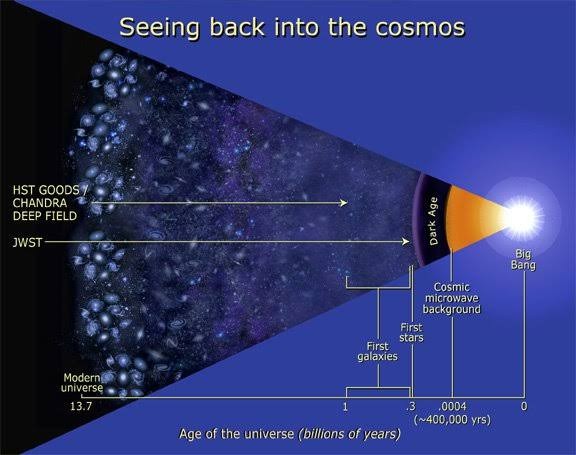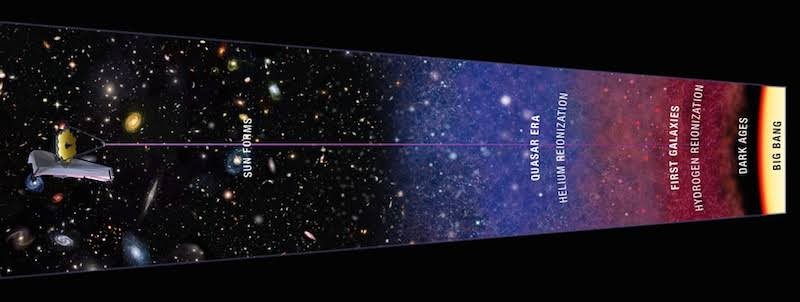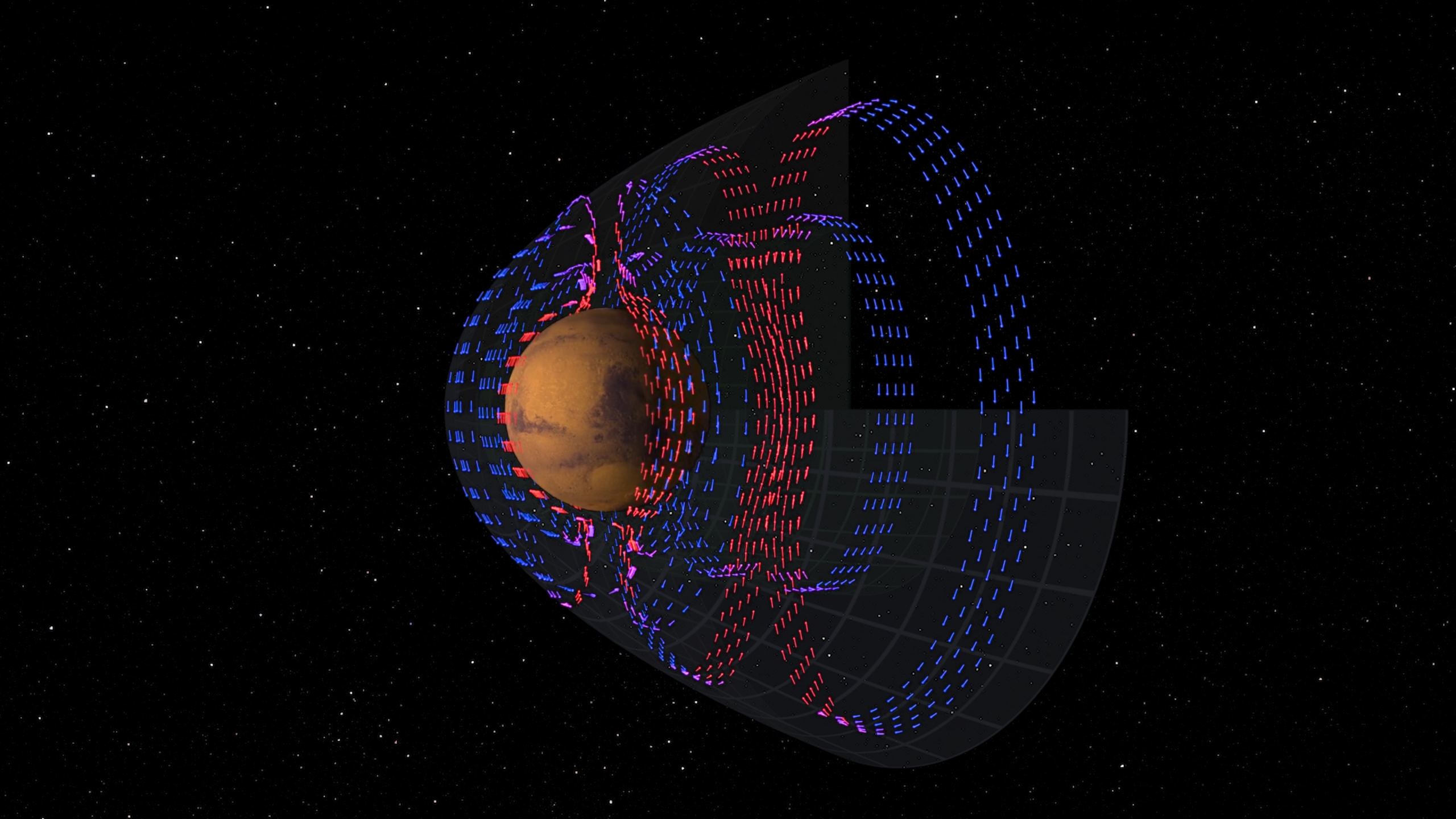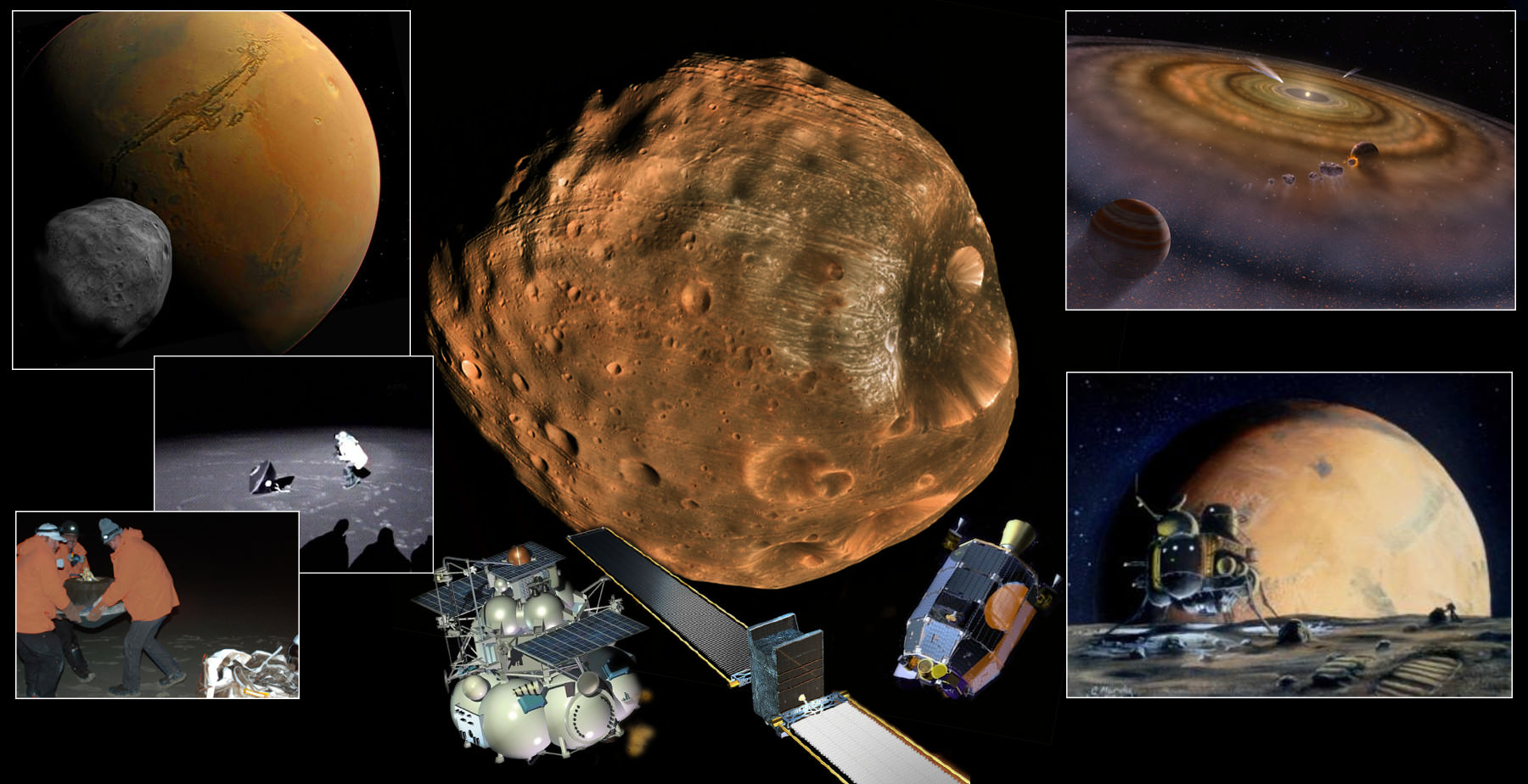ReinyDays
Gold Member
RE: James Webb Space Telescope
"It is specifically made to look and unravel the mysteries of the creation and formation of our solar system, galaxies and other exoplanetary systems in the universe.
People are amazed and moved by the thought of how can James Webb Space Telescope will see back in time and that leads to major revelations of what we are lacking to conclude in the theories of creation of all source and the crucial processes that are required to build and formulate such tremendous masses capable of providing life and habitat for numerous species and also throws some light on the say of being alone in the universe.
...
"
How far back can JWST see in the past?

Image credit: NASA
One of the major goals and target of launching or developing this mission was to see the abnormalities and procedures of formulation of planetary systems, galaxies and stars thereby granting us the superpower of looking back in time.
As light coming from the further objects like stars take an ample amount of time to reach and which is the major principle behind this module. The further away an object is, the further back in time we are looking. This is because of the time taken by light to travel from the object to us."
Because of JWST's larger mirror, it will enable us to see almost the major way back to the beginning of the Universe, around 13.7 billion years ago.
Its ability to view the Universe in longer wavelength infrared light, It will be capable of seeing some of the most distant galaxies in our Universe, certainly with more ease than the visible/ultraviolet light view of Hubble.
This is because light from distant objects is stretched out by the expansion of our Universe, an effect known as Redshift pushing the light out of the visible range and into infrared.
Bits and pieces of the Theory behind JWST seeing back in time
Simple understand this fact that when telescopes look at the light from distant galaxies, they are not literally looking back in time. The past no longer exists, so no one can directly look at it. Instead, the telescopes are looking at the present-time pattern of a beam of light.
Since the beam of light has been traveling through the mostly-empty vacuum of space for millions of years, it has been largely undisturbed. Therefore, the present-time pattern of this beam of light is the same as the pattern that it had when it was first created by the distant galaxy millions of years ago.
By looking at the present-time state of a beam of light, we can thus infer what the galaxy that created the light looked like millions of years ago."

How can the James Webb Telescope see back in time?
Introduction The fellow that can only see a week ahead is always the popular fellow, for he is looking with the crowd. But the one that can see years ahead, he has a telescope and he can't make anybody believe that he has it.www.linkedin.com
That's all fine and dandy ... but Mars is only 4 light-minutes away from Earth ... we'll only learn about Mars' past from 4 minutes ago ... sooner than news from the Sun ...


